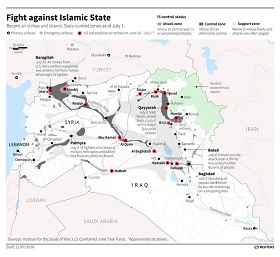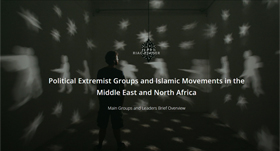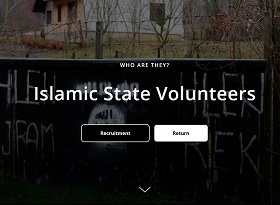On June 29, 2014, Abu Bakr Al Baghdadi, the head of what was then known as the Islamic State of Iraq and Levant, proclaimed the establishment of the Caliphate. Two years on, in summer 2016, the Islamic State celebrated its “birthday” with a spate of terror strikes. The Islamic State spokesman Abu Mohammed Al Adnani released a statement in May that called upon Muslims worldwide to make Ramadan “a month of calamity everywhere for non-believers”.
On June 29, 2014, Abu Bakr Al Baghdadi, the head of what was then known as the Islamic State of Iraq and Levant, proclaimed the establishment of the Caliphate. Two years on, in summer 2016, the Islamic State celebrated its “birthday” with a spate of terror strikes.
The Islamic State spokesman Abu Mohammed Al Adnani released a statement in May that called upon Muslims worldwide to make Ramadan “a month of calamity everywhere for non-believers”.
A string of attacks carried out by Islamic State fighters throughout the Middle East rocked Turkey, Iraq and Saudi Arabia in the final days of the holy month of Ramadan. The devastating suicide bomb attack in a predominantly Shia area of Baghdad that took 292 lives was shocking in its barbarity but was not surprising in its nature. The Islamic State that claims to propagate pure Islam sees any diversion from its Salafi Jihadi ideology as a deviation that needs to be eradicated. In that regard the Baghdad attack against Shia Muslims largely fell in line with their ideology.
The blasts in Turkey on June 28 and Saudi Arabia on July 4 were different in that the Islamic State was targeting Sunnis, the very sect the group appeals to in its videos and statements.
Muslims around the world condemned these attacks and even some Sunni extremist groups rushed to speak against the atrocities perpetrated by the Islamic State which speaks volumes about the lengths it is ready to go for the sake of advancing its agenda. Jabhat Al Nusra, another extremist group operating in Syria, released a statement in which it called the Medina blast “a criminal act that Muslims must condemn.”
Recent suicide attacks reveal just how unislamic the Islamic State really is. This point was reinforced by IS bombing in Medina, one of Islam’s most sacred sites. The endgame of this entire operation is still not clear. However, the fact that the Islamic State has not claimed this attack yet reveals how little coordination there is between the organization’s core and its cells throughout the region. IS and the Saudi monarchy both claim to be each other’s enemies, so the three attacks in Saudi Arabia were likely designed to deliver a political blow to the King, yet the group ended up shooting itself in the foot.
In the past two years IS has funded its terror campaign in the Middle East from illicit oil trade, by robbing banks, selling historic artifacts on the black market and imposing taxes on civilians. Now that the oil prices have collapsed, banks have been robbed and civilians living under IS control have been impoverished, the organization’s finances are running thin. Experts believe that such deadly attacks of the Islamic State are part of its new strategy of attracting new fighters and new sponsors. There is a clear need for both: according to the Pentagon, the number of IS recruits arriving in Iraq and Syria dropped more than seven-fold in the last twelve months, from 1,500 a month in April 2015 to just 200 in 2016.
Consequently, the territory controlled by the Islamic State is shrinking. According to US officials, the group has lost 47% of its territory in Iraq and 20% in Syria. Bombings in Iraq, Turkey and Saudi Arabia help the organization attract marginalized elements whose goal is not even building the illusive Caliphate but spreading jihad, which they interpret as their path towards liberation.
The bad thing is that the Islamic State that is clearly becoming weaker and is shrinking which encourages its offshoots abroad to carry out attacks locally. In other words the idea of localizing IS and eradicating it inside Iraq and Syria has failed. We are now witnessing IS-inspired violence that does not necessarily have to be coordinated with the leadership and that poses a threat of a major spillover into the wider region.
Do recent events mean that the Islamic State is declining? Yes and no, it is rather imploding from within, but this process may last for years and can be extremely bloody. Being an entity that depends greatly on its public image the Islamic State will resort to suicide attacks more and more as it grows weaker. This threatens to create more regional instability and the Islamic State’s calculation is that regional powers will opt for dealing with it inside Syria and Iraq, on IS-dominated soil. This would be a mistake, instead world powers need to concentrate on tightening security around Syria and Iraq to prevent IS attacks from happening there as well as globally and allow the Caliphate to destroy itself from within.







